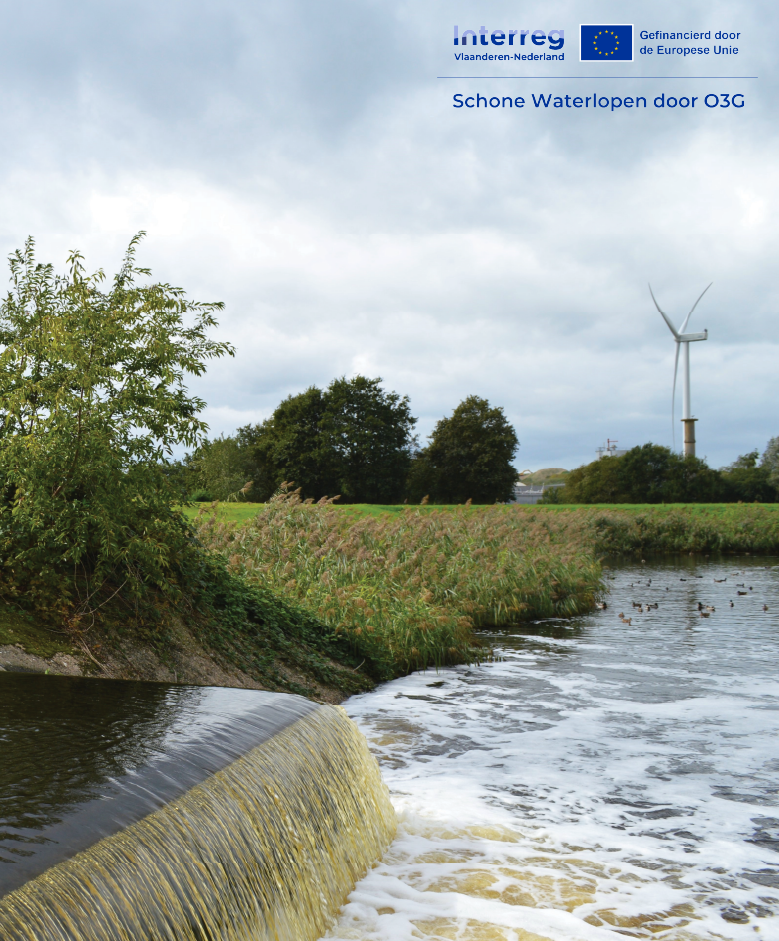Clean Waterways through O3G

Sewage treatment plants (WWTPs) purify domestic and industrial waste
water, which is then discharged as effluent to surface water. Although effluent quality has improved significantly in recent years, emerging organic micropollutants (OMVs) such as pharmaceutical residues, pesticides and PFAS compounds, among others, require increasing attention.
Through the Flanders-Netherlands Interreg Project Clean Waterways by O3G, we want to demonstrate that Ozonation (O3) in combination with Granular Activated Carbon (GAK) can be used at WWTPs as an innovative, effective and cost-efficient post-treatment technique that improves surface water quality in Flanders and the Netherlands.
Ozonation is an extremely efficient technique for removing a wide range of organic micro-contaminants, but has the disadvantage that harmful by-products such as bromate and transformation products can be formed. A higher ozone dosage, which is necessary for extensive removal of OMVs, also leads to a greater risk of the formation of these by-products. With GAK filtration, these by-products are not formed, but frequent regeneration of the activated carbon is necessary, which in turn leads to high costs and a large CO2 footprint. That is why in this project we investigate how these two technologies can be optimally coordinated to achieve the highest possible OMV removal with minimal formation of by-products, minimal GAK regeneration and optimal energy and raw material consumption.
Within the project, Vlakwa takes on project coordination and communication. Tests will also be carried out on a new full-scale installation at Aquafin WWTP in Aartselaar and on a pilot installation at Waterschap De Dommel in Tilburg. Other partners are: AM-Team, Aquafin, CAPTURE, HZ University of Applied Sciences, University of Antwerp, Ghent University and De Dommel Water Board.
Project duration: 01/09/2023 – 31/08/2026
With support from Interreg Flanders-Netherlands

